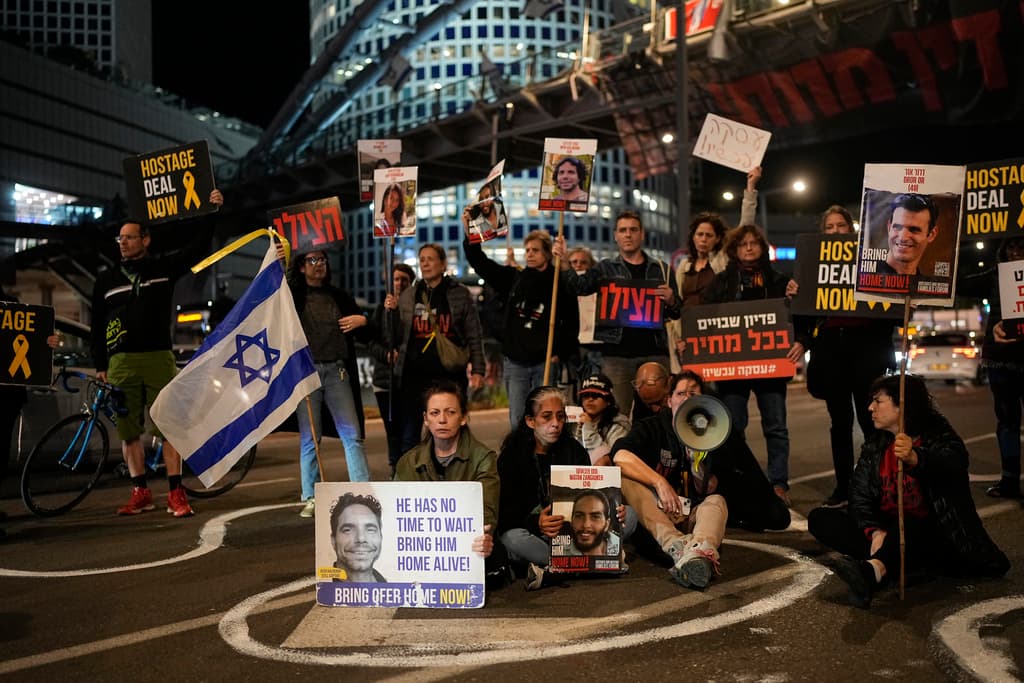A Lesson for Our Time From U.S. ‘Unconditional Surrender’ Grant
Letting Hamas establish a myth of ‘victory’ spells trouble in the Middle East.

Hamas is building a narrative of “victory” over Israel out of Gaza’s destruction. It’s tempting to dismiss the idea as absurd, but that impulse is dangerous. Defeated nations often cast not losing as winning and use this mantra to rally support for resuming hostilities at a future date.
“Palestinians and their supporters abroad,” the Sun’s Novi Zhukovsky reported on Friday, “have gone from accusing Israel of committing genocide to jubilantly proclaiming that Hamas has won the war.” This is sowing the seeds of tomorrow’s conflict today.
A resident senior fellow at the Atlantic Council, Ahmed Fouad Alkhatib, responded to a tweet on X bragging, “I survived the Israeli genocide.” The accompanying photo showed a man sitting amidst the rubble of Gaza drinking tea.
“So,” Mr. Alkhatib asked, “which was it: a ‘genocide’ or a victory for the ‘resistance’? People experiencing genocide don’t generally emerge flexing … with a cup of tea to collect likes and shares. Why, folks? Why undermine Gazans’ suffering with such nonsense?”
The reason is becoming clear, with Hamas reasserting control and slaughtering Gazans who resist their rule. This emerging false reality is an argument for prosecuting the war until Hamas is destroyed, rather than giving them time to rebuild and pursue their goal to destroy Israel.
It was a cease-fire, rather than a surrender, that halted the Gulf War. The country’s dictator, Saddam Hussein, remained in power thanks to exploiting terms of the cease-fire to crush his domestic opposition. The result was a more costly war a dozen years later.
The Korean War ended in an armistice — a halt to the fighting but not to the state of war. When that country’s dictator, Kim Jong-un, touts the legacy of his grandfather, Kim Il-sung, it’s not one of failing to conquer South Korea. It’s victory over America — and the Kims have often threatened to resume the fight, now with nuclear weapons.
On Route 28 at Summerville, New Jersey, stands a monument to the folly of assuming that vanquished foes will accept their defeats. Few of the drivers who speed past the plaque and stone pillars give much thought to it being the spot where America put World War I to bed in 1921.
President Harding didn’t reflect much on the future when he arrived at the senator’s house on the spot, either. He left his golf game to sign the Knox-Porter Resolution declaring Germany was no longer an enemy and returned to the links. A generation later, Hitler would exploit the claim that Germany had never surrendered.
The Allies learned from their mistake in World War II, rejecting Nazi offers of a deal to keep them in power. Their Axis allies in Japan, hoping to follow the Kaiser’s World War I model, rejected demands to surrender until the atomic bombs compelled them to lay down arms.
The Japanese saw their leaders signing the articles of capitulation aboard the United States Ship Missouri. They couldn’t deny any more than the Germans could that they had lost. It accomplished the feat President Grant had in the Civil War when he demanded unconditional surrender at Vicksburg.
Following that victory, at great cost to the city’s residents, Americans began to suggest that the U.S. in Grant’s name stood for Unconditional Surrender. While he and President Lincoln offered generous terms to their vanquished foes, and helped civilians, only after crushing the Confederates did Grant say, “Let us have peace.”
Twenty years of occupation by federal troops and the policies of Reconstruction were not easy, and freedmen often paid the price for reconciliation. Forcing unconditional surrender, though, prevented a second conflict from erupting between the North and South.
“War is the remedy our enemies have chosen,” General William Tecumseh Sherman wrote of the Confederates in 1864. “They wanted war, and I say, ‘Let us give them all they want — not a word of argument, not a sign of let up, no cave in — ‘til we are whipped or they are.’”
“Sherman,” I wrote for the Sun in October 2023, “knew that half measures would only prolong suffering and anything short of total victory would allow the South to rise again, as has happened repeatedly with Hamas.”
Sherman, Grant, and Lincoln — like America’s leaders in World War II — never relented in their pursuit of the foe’s total defeat. Stopping short might have been more popular and less bloody in the short term. In the long term, it would have meant greater suffering on all sides.
For Israelis and Gazans, the failures of Hamas to use past cease-fires to pursue peace are cautionary. Leaving an enemy intact to build a myth of victory only ensures more suffering at a future date. Forcing surrender is more costly, but when it silences the enemy’s guns, they stay silent, and at last we have peace.

